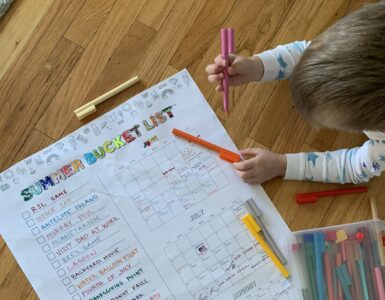Conversation
Grandparents are the head, and the heart, of the family. But instead of
being in the middle, sometimes it’s easy to feel on the outside. So at the
Sunday dinner table, or at the crazy, loud family reunion – how can you
pull Grandma and Grandpa into the current conversations?
Relationship Coach Matt Townsend says it’s all about creating space.
Nothing can be more powerful than an in-depth dialogue and conversation
with those you love, especially your grandparents. Young British
Psychotherapists in World War II found the incredibly healing benefits of
having the soldiers traumatized by the war simply gather in groups to
discuss their situation and feelings. Communication expert Patrick DeMare
called this therapeutic dynamic “Koinoinia” from the Greek word for
“communion and fellowship.” Koinonia Conversations nurtures closeness
and appreciation of others and binds those in the conversation to be more
closely tied to each other.
Our goal with our families should be to create this same spirit of Koinonia
and there is no faster way to do so than to invite grandparents into the
circle of conversation. The keys are to gently create the space and then
have the conversations.
Create the Space for the Conversation
· Place grandma and grandpa in a place of prominence in every setting,
at the center of the hub rather than on the outside scene where they might
naturally gravitate.
· Ask them ahead of time if they would feel comfortable sharing some
advice or wisdom about their lives.
· Invite them to be participants in the conversation, not simply
bystanders.
· Gently tease out of them deeper answers that they might not normally
share at first. They will eventually move from the simplistic responses to
the more profoundly simple and sincere ones.
· Don’t be quick to jump in during moments of awkward silence,
remember their processors don’t process as fast but the data is still good.
· Teach your children the principle of, “Listen the most to the one that
speaks the least!”
· Invite them into one of the five conversations listed below
The Five Must Have Conversations with Grandma and Grandpa
The “Who Are We?” Conversation
The “Who are We?” conversation is conversation that situates grandma and
grandpa as the expert on our family heritage and family lines. This
question helps grandparents to share the legacy of all of your ancestors
that have gone before.
· Ask them about where your ancestors originated, where they family
name came from and other family history.
· Find out what they know about their parents and grandparents and
great grandparents.
· What occupations did they have, were they educated? What were their
religious traditions?
· Has there been genealogy performed for them? Remember that they
probably have more information in their heads about your family history,
than you could ever find in a life time of searching.
· Invite them to explain what it means to come from the family line they
did.
· Have them explain in detail as many stories about their family as they
can remember.
· Discuss the marriages, illnesses, successes and disappointments of the
family line.
Make sure that your children are all paying attention for the short
discussions around the dinner table or living room. By learning
grandparents’ important stories we not only learn who we are, but what we
can become.
Opening Question: “Grandma and Grandpa, tell us what you
remember about your grandparents and parents. What were they like? What
made them special?”
The “Who are You?” Conversation
The “Who are you?” conversation is a discussion specifically about your
grandparents and their life together. The goal of the “Who are you?”
conversation is to literally get to know your grandparents as much or even
more than you know your closest friends. Learn what made them tick, pick
up their stories and understand all you can from their lives and learn to
incorporate them into your life. Use this conversation to discuss your
grandparent’s favorite things as a child, their likes and dislikes, their
hobbies, happiest moments and hide outs.
· Have them explain what made them feel strong and what they were
most insecure about.
· Have them discuss their best times together, ask them to discuss
information about their marriage proposal and wedding day.
· Have them share how they decided which occupation to pursue or how
many children they wanted to have.
· Ask them to share with you specific stories about the hardest parts of
their lives and the most satisfying times of their life.
· What was their purpose in life? What rules did they live by and what
lessons did they learn?
Opening Question: “Grandma and Grandpa, when you think of
one of your happiest memories in your earlier days, what is it? What was it
about that event that made you so happy?”
The “Who Am I?” Conversation?
The “Who am I?” conversation is one where we begin to learn who we are
through the eyes of our grandparents. One of the best questions I’ve ever
found to open up the “Who am I?” conversation is something like, “Grandpa
and Grandma when you look around at all of these children and
grandchildren, what do you see?” One of the greatest ways to know who
you really are is to ask someone who loves you unconditionally and nobody
really does that better than your grandparents.
· Ask them to go around the room and tell things that they respect about
their children and grandchildren.
· Ask them about how they feel about the world today with all of the new
technology and activities going on.
· Ask them to compare their lives to the lives of their grandchildren.
· Ask them for specific examples of what they value and love about each
of their grandchildren and children. Although this can be an uncomfortable
conversation, tell them how much it means to those who will receive the
answers.
Opening Question: “Grandpa and Grandma when you look around
at all of these children and grandchildren, what do you see in us?”
The “What Matters Most?” Conversation
The greatest benefit of getting older is usually the fact that you’ve also
gotten wiser. The wisdom of our grandparents will be wasted if we do not
ask them to share it with us. The “What Matters Most?” conversation is
simply where we defer to the expertise of our grandparents and ask them
to share with us what they have learned really matters most in life.
· Ask them to comment on the values and goals of the world and where
we, as a family, may need to recalibrate.
· Ask them to share the specific stories that taught them what truly
matters most.
· Also create a space where they negative examples can be accepted and
appreciated just as much as the positive examples.
Opening Question: “Grandma and Grandpa, in all of your years of
experiencing life and what it has to offer, what are the three things that
you have found really matter most and why do they matter so much to
you?”
The “What Do You Need Us To Know?” Conversation
One final question that I just realized that needs to be asked and answered
by our grandparents on a more regular basis is “What do you need us to
know?” I’m committed to asking our parents and grandparents this
question more regularly, so that they always have the chance to let us
know what is on their mind and in their heart. Make it a tradition before
you leave a family gathering or event to quiet the crowd long enough to let
the matriarch and patriarch of the family share what they need everyone to
know.
Opening Question: “Grandma and Grandpa, what do you need us
all to know?”
Remember that as we all age and our bodies tend to slow down a bit our
minds don’t have to, instead they can get much clearer. Commit right now
to create new habits and patterns in your family conversations that will
allow the clarity of your grandparent’s wisdom to influence the chaos of the
younger generations.
For more relationship advice, attend:
Smart Life with Matt Townsend
Workshops for Women
Thursdays from 1:00 – 2:30 pm
$15 per person
Call for information and location
(801)747-2121
www.mattTownsend.com
Look up Matt Townsend on Facebook!















Add comment